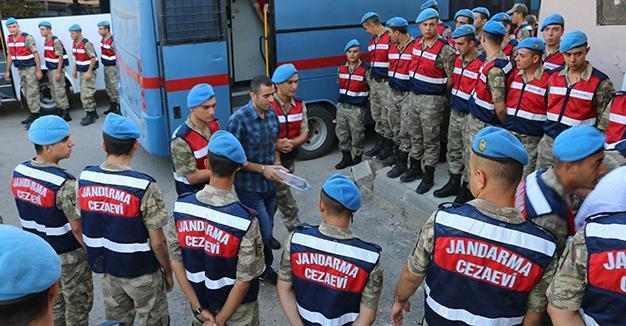State Inspection Council, key advisors to inform Erdoğan on Gülen-linked trials
Erdinç Çelikkan – ANKARA

AA photo
Turkey’s State Inspection Council (DDK) and President Recep Tayyip Erodoğan’s key advisors will closely monitor trials in Ankara and Istanbul of suspects arrested for alleged links to the Fethullahist Terrorist Organization (FETÖ) before submitting relevant reports to the president.
The DDK, under the direct authority of the president and consisting of nine members, along with a 40-member team of Erdoğan’s key advisors, will observe the trials in person and inform him of the suspects’ defense cases.
DDK members and key legal advisors including Mustafa Akış, Ahmet Karayiğit, Mehmet Uçum, Ayşe Türkmenoğlu and Özlem Zengin will report their analyses after noting controversial points in the suspects’ testimonies.
The advisors will accordingly give briefings to Erdoğan on daily and weekly bases.
The nine-member DDK committee, under the leadership of its head, Yunus Arıncı, has been in the process of preparing a report on FETÖ, with the aim of bringing both the political and financial legs of FETÖ to light. It has been asking relevant institutions to send information on suspected Gülenists, and in the final stage of this work the DDK committee will compare the report with the testimonies of the suspects given in trial.
Meanwhile, former governor of the eastern province of Bitlis, Veysel Yurdakul, was sentenced on Sept. 6 by an Ankara court to seven-and-a-half years on charges of being a “member of an armed terrorist organization” in a FETÖ-linked trial, state-run Anadolu Agency has reported.
The Ankara 17th Heavy Penalty Court ruled for the release of the arrested Yurdakul but imposed a ban on his traveling abroad.
Ankara says FETÖ is behind a long-running campaign to overthrow the state through the infiltration of Turkish institutions, particularly the military, police and judiciary.
In the wake of last year’s coup attempt, tens of thousands of people with alleged links to the movement have been detained, including many in the armed forces, police, judiciary, education and business sectors.
